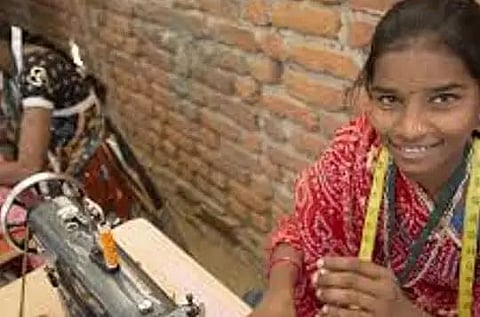
- Home
- Live Blog
- Breaking News
- Top Headlines
- Cities
- NE News
- Sentinel Media
- Sports
- Education
- Jobs

Ranjan K Baruah
(With direct inputs from UN/WHO publication and feedback may be sent to bkranjan@gmail.com)
Every human being is born free but many are deprived of rights due to many reasons. No rights mean justice is absent and this may be related to one individual or maybe one community. Social justice is the view that everyone deserves equal economic, political and social rights and opportunities. It is important to have social justice if we want inclusive growth and sustainable development.
We should be aware that more than 60 per cent of the world's employed population, that is 2 billion women, men and youth, earn their livelihoods in the informal economy. The COVID-19 pandemic has put a spotlight on the vulnerability of workers in the informal economy. Informal workers, who often lack any form of social protection or employment-related benefits, are twice as likely to be poor compared to formal workers. Most people enter the informal economy not by choice, but due to a lack of opportunities in the formal economy.
Promoting the transition to formal employment is a necessary condition to reduce poverty and inequalities, advance decent work, increase productivity and sustainability of enterprises and expand the government's scope of action, notably in times of crisis. The 2030 Agenda and the Secretary-General's report on Our Common Agenda, acknowledge the transition to formality as a priority. The report also calls for road maps to be established to integrate informal workers and enterprises into formal economies, to benefit from women's full participation in the workforce, and to reduce inequalities more broadly.
The International Labour Organization unanimously adopted the ILO Declaration on Social Justice for a Fair Globalization on 10 June 2008. This is the third major statement of principles and policies adopted by the International Labour Conference since the ILO's Constitution of 1919. It builds on the Philadelphia Declaration of 1944 and the Declaration on Fundamental Principles and Rights at Work of 1998. The 2008 Declaration expresses the contemporary vision of the ILO's mandate in the era of globalization.
The General Assembly of the United Nations recognizes that social development and social justice are indispensable for the achievement and maintenance of peace and security within and among nations and that, in turn, social development and social justice cannot be attained in the absence of peace and security or the absence of respect for all human rights and fundamental freedoms. On 26 November 2007, the General Assembly of the UN declared that starting from the sixty-third session of the General Assembly, 20 February will be celebrated annually as the World Day of Social Justice.
In India, we have the Ministry of Social Justice which is responsible for activities related to social justice. The Department of Social Justice and Empowerment is the nodal Department for the overall policy, planning and coordination of programmes for the development of the groups like Scheduled Castes, Socially and Educationally Backward Classes, Denotified Tribes, Economically Backward Classes, Senior Citizens, etc. Different social organizations and civil society organizations are working in the field of social justice.
Let us celebrate the day and ensure social justice for all who need justice. No one should be left behind if we want to achieve sustainable development goals. This year's theme for the day is "Achieving Social Justice through Formal Employment" and this provides us with an opportunity to work in the field of creating employment for the people who are otherwise left behind. Apart from the government all of us have a responsibility to ensure social justice for all and this is possible when we work together to bring a change and enhance employability for all. The day provides an opportunity to raise awareness and make a commitment to bringing change and ensuring rights for all. Together we can make a difference and let us take up the challenge to make the future more sustainable.